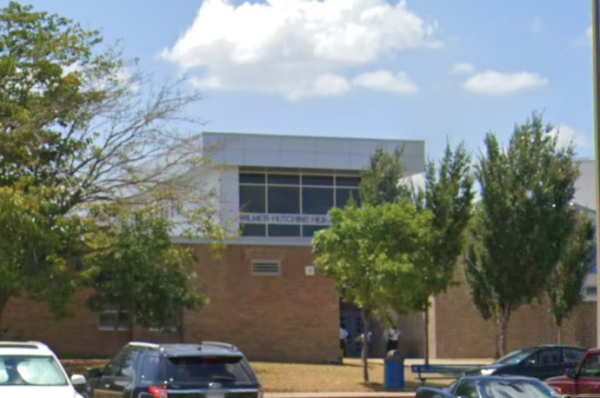
At least three students were wounded Tuesday afternoon at Wilmer-Hutchins High School located at 5520 Langdon Rd, Dallas, TX 75241, including a 17-year-old shot in the leg. The incident unfolded around 1:25 p.m., triggering an immediate response from Dallas police, fire, and emergency medical personnel, according to ABC 6.
Preliminary reports indicate the shooting involved students and does not qualify as an active shooter event. A senior student recounted hearing gunshots near lunchtime, followed by chaos as students ran and screamed. He took cover in the band room during the ordeal.
Video footage shows students evacuating the campus while police cars and fire trucks swarmed the scene. The Dallas Independent School District confirmed the school has been secured and urged the public to stay away from the area.
Students and families are gathering at Eagles Stadium for reunification, with officials requesting parents bring photo identification. Counselors are on site to assist those affected by the traumatic event.
Dallas Mayor Pro Tem Tennell Atkins noted the suspect’s identity is known, though it is unclear if an arrest has been made. None of the injuries appear life-threatening. This shooting follows a similar incident at the school last year, after which security protocols were strengthened. Authorities continue to investigate and will provide updates as new information emerges.

After the recent shooting at Wilmer-Hutchins High School in Dallas, many families are left searching for answers about what steps they can take to protect their rights and hold responsible parties accountable. Attorney Anjali Nigam discusses the legal avenues available to those injured or killed in school shootings. She explains how victims can seek compensation, what must be proven in civil lawsuits, and the role of school and parental responsibility when safety measures fail.
Editor Darla Medina: Thank you for joining us. After today’s shooting at Wilmer-Hutchins High School, many families are asking what legal rights victims have if they’re injured in a school shooting. Can you explain what options are available?
Attorney Anjali Nigam: Victims of school shootings in Texas have several legal avenues. They can file civil lawsuits against the shooter if the shooter is identified and has assets, but often, the focus shifts to whether other parties—such as the school district, staff, or even parents of the shooter—were negligent in a way that contributed to the incident. For example, if a school failed to follow safety protocols or if a parent failed to secure a firearm, those actions could form the basis of a civil claim.
Medina: What does a victim need to prove in order to hold someone else liable in a civil lawsuit?
Nigam: The key is establishing negligence or intentional harm. In Texas, a victim must show that the defendant owed a duty of care, breached that duty, and that the breach directly caused the injury. For schools, this could mean failing to provide adequate security or ignoring warning signs. For parents, it could involve not securing firearms or ignoring their child’s behavioral issues. Evidence such as police reports, witness statements, and school records can be critical in building a case.
Medina: Are there any recent legal trends in holding parties other than the shooter accountable?
Nigam: Yes, we’re seeing more cases where parents and even school officials are being held responsible, especially if their negligence played a role. Recent high-profile cases in other states have resulted in criminal charges and civil verdicts against parents who failed to secure firearms or ignored warning signs. In Texas, civil juries have considered whether parents or schools should bear financial responsibility, though outcomes can vary depending on the facts.
Medina: What compensation can victims seek through these lawsuits?
Nigam: Victims can pursue damages for medical expenses, pain and suffering, emotional distress, and sometimes punitive damages if the conduct was especially egregious. The goal is to help victims recover from the trauma and losses they’ve suffered.
Medina: Is there any state support available for victims?
Nigam: Yes, Texas has a Crime Victims’ Compensation Program that can help cover medical bills, counseling, and other expenses related to the crime. Victims or their families can apply for this support, which is separate from any civil lawsuit they might file.
If your family has been impacted by a high school shooting, you don’t have to navigate this difficult time alone. Our team is here to answer your questions, explain your rights, and help you explore every legal option available. Contact us today for a free, confidential consultation and let us stand with you as you seek accountability and support for your loved ones.
 info@legalherald.com
info@legalherald.com